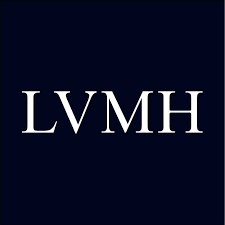The EU is gradually adopting mandatory measures for companies in a number of key industries of concern (raw materials, APIs, semiconductors, batteries, renewable energy, cloud computing, cybersecurity, etc.) within legislative deadlines, e.g., from July 1, 2024, manufacturers and suppliers of industrial and electric vehicle batteries entering the European market will be required to provide a Carbon Footprint Statement, and from the beginning of January 2026, battery producers must label their products according to carbon intensity performance categories, etc. In addition to this, the EU has introduced even more stringent requirements for human rights due diligence in the supply chain, and the EU and Member States will be moving quickly to develop and implement appropriate regulations.
ESG Practices in the Supply Chain of EU Companies—LVMH
LVMH’s latest sustainability program is “Life 360”, which will be announced in September 2021. The program aims to set the roadmap for LVMH’s 2050 sustainability goals and includes four key areas: climate action, natural capital protection, social inclusion and innovation. Specific objectives include reducing carbon emissions, promoting renewable energy, increasing product recycling, improving supply chain sustainability, protecting wildlife, supporting employee well-being and diversity, and improving the brand’s social responsibility and transparency. In terms of its supply chain, LVMH has taken a number of steps to ensure that its suppliers comply with the company’s sustainability requirements.
First, the company audits and evaluates lvmh suppliers through third-party assessment organizations such as Ecovadis to assess their environmental, social and governance performance. At the same time, LVMH actively promotes suppliers’ participation in its sustainability programs and provides training and resource support to help them improve their sustainability performance.
Secondly, LVMH has also strengthened its monitoring of lvmh supplier compliance, including reviewing aspects such as their labor conditions and environmental protection measures. The company has also adopted more stringent auditing measures, including on-site audits of suppliers, to ensure that they meet LVMH’s sustainability requirements and obtain lvmh audits.
Finally, LVMH is also actively promoting the concept of sustainability throughout its supply chain and driving the transformation of its supply chain to a more sustainable model. The company is developing new sustainability standards as well as providing suppliers with more environmentally friendly and sustainable products and services.
In summary, LVMH has taken a number of initiatives in supply chain management through the Life 360 program, which aims to ensure that its suppliers comply with the company’s sustainability requirements and to actively promote the development of a more sustainable supply chain.
The CSDD (Corporate Sustainability Due Diligence Directive), adopted by the European Union in July this year, will require greater transparency in our supply chain, and LVMH has already asked for audits of its secondary lvmh suppliers, especially factories with the LVMH logo and plating, etc. Before large-scale audits can be conducted, an internal audit is required. Before the large-scale audit, it is necessary to internally check the status of the factory’s second-tier lvmh supplier to control the risk. In order to obtain the lvmh audit report, in addition to the general need to fill out the following schedule.
At Top Jewelry Ltd, we are proud to host lvmh audits and annual updates. If you need more information or would like to view our latest lvmh audit report, please feel free to contact us at sales@top-jewelry.cn or sales@top-jewelry.net.


